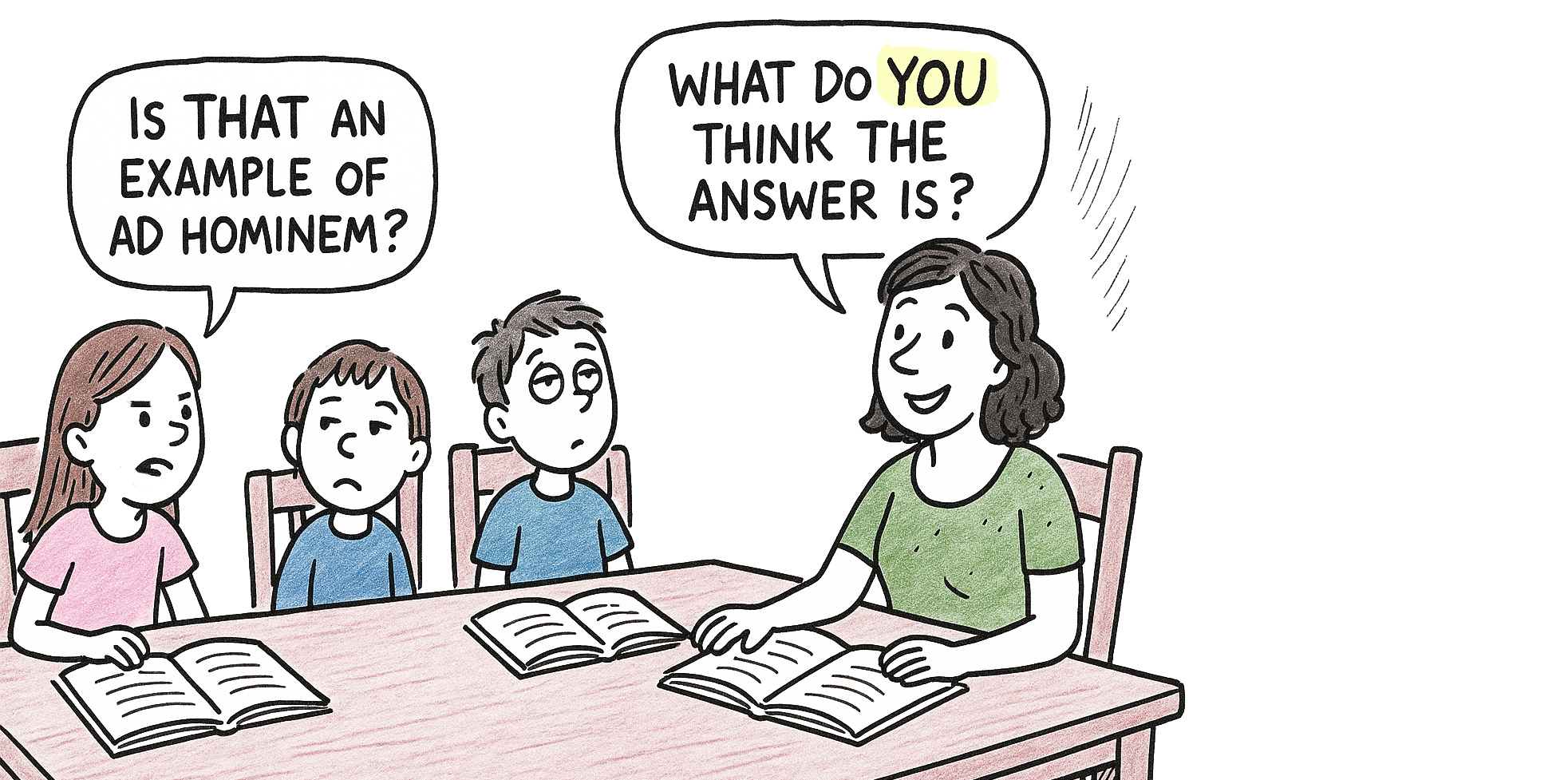“You may think you are helping your children learn when you answer their burning questions with a question, such as ‘What do you think?’ or ‘How might we find the answer to that?’, but it is more likely to annoy them so much they avoid asking you questions in future.”
– Sarah Fitz-Claridge
From the archives: Posted on 5th March, 1994
“The follow on question to ‘What do you think?’ is ‘How could you test to see if you’re right?’”
Do your children really respond well to these sorts of questions? I hated it when my mother, fresh from teacher-training college, began replying to my real, urgent questions with, “What do you think?” or “How do you think we might find the answer to that?”
She tells me that the aim was to challenge me, to make me think, to help me work out the answer for myself. What it did was irritate me to the extent where I had to crush the question from my mind or die of frustration. I just wanted to KNOW—right then—not in half an hour after a tortuous lesson.
It felt so patronising, and don’t you think it is a little disingenuous to ask questions when you know the answer?
(Sorry. Hope this isn’t too offensive. “I blame the mother…” 🙂 )
See also:
- Reflections on self-sacrifice and fundamental assumptions
- Popper’s epistemology and the everyday lives of children
- Thoughts on the housework problem
Sarah Fitz-Claridge, 1994, ‘“What do you think?”’, https://takingchildrenseriously.com/what-do-you-think/
